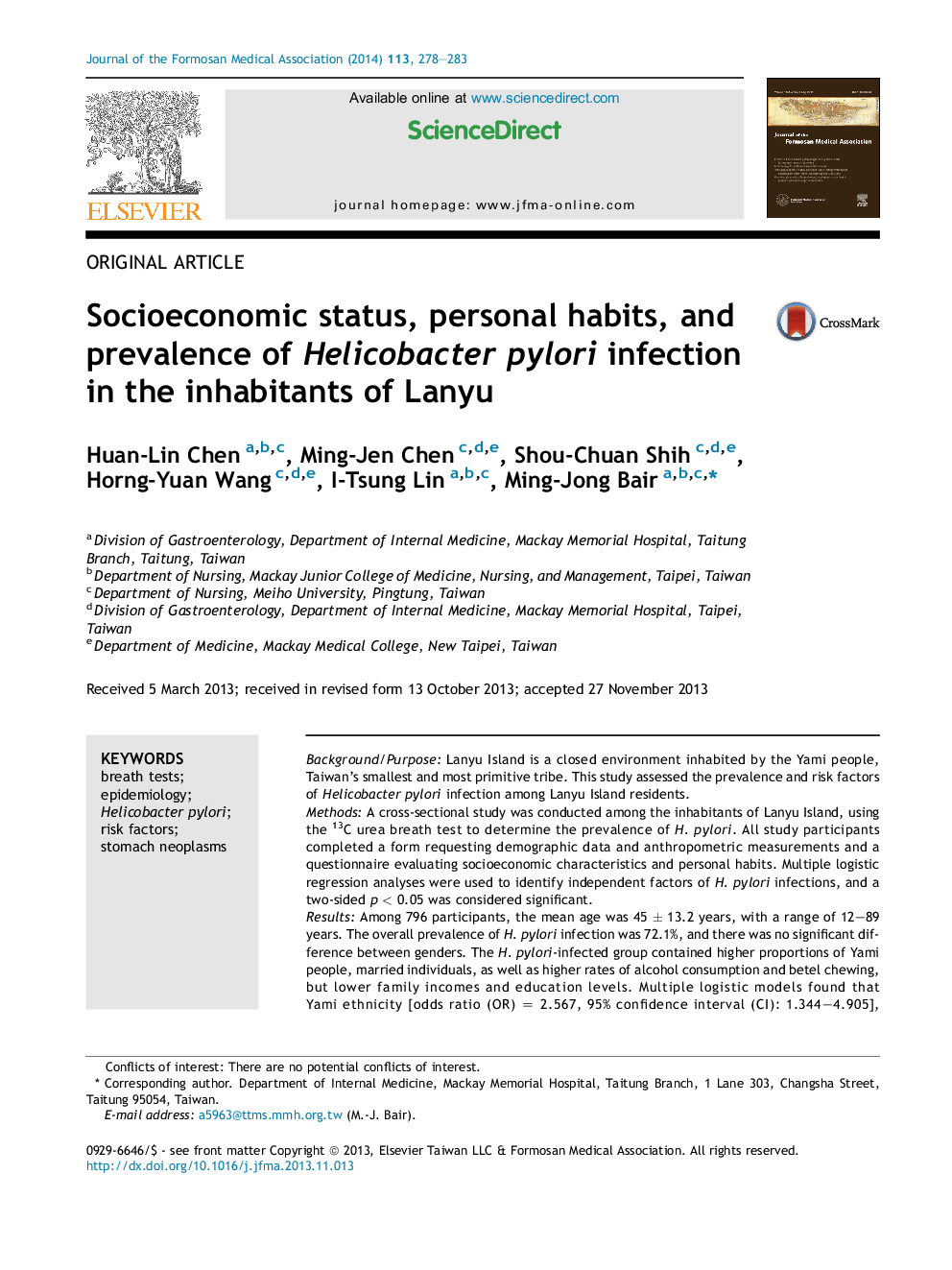| Article ID | Journal | Published Year | Pages | File Type |
|---|---|---|---|---|
| 3478955 | Journal of the Formosan Medical Association | 2014 | 6 Pages |
Background/PurposeLanyu Island is a closed environment inhabited by the Yami people, Taiwan's smallest and most primitive tribe. This study assessed the prevalence and risk factors of Helicobacter pylori infection among Lanyu Island residents.MethodsA cross-sectional study was conducted among the inhabitants of Lanyu Island, using the 13C urea breath test to determine the prevalence of H. pylori. All study participants completed a form requesting demographic data and anthropometric measurements and a questionnaire evaluating socioeconomic characteristics and personal habits. Multiple logistic regression analyses were used to identify independent factors of H. pylori infections, and a two-sided p < 0.05 was considered significant.ResultsAmong 796 participants, the mean age was 45 ± 13.2 years, with a range of 12–89 years. The overall prevalence of H. pylori infection was 72.1%, and there was no significant difference between genders. The H. pylori-infected group contained higher proportions of Yami people, married individuals, as well as higher rates of alcohol consumption and betel chewing, but lower family incomes and education levels. Multiple logistic models found that Yami ethnicity [odds ratio (OR) = 2.567, 95% confidence interval (CI): 1.344–4.905], alcohol consumption (OR = 1.641, 95% CI: 1.151–2.341), and marital status (OR = 1.779, 95% CI: 1.043–3.032] were associated with H. pylori infection.ConclusionThis cross-sectional study identified a high prevalence of H. pylori infection on Lanyu Island. When investigating H. pylori infection status in a closed environment, such as Lanyu Island, it is important to consider all factors relating to the host population, including environment and lifestyle.
